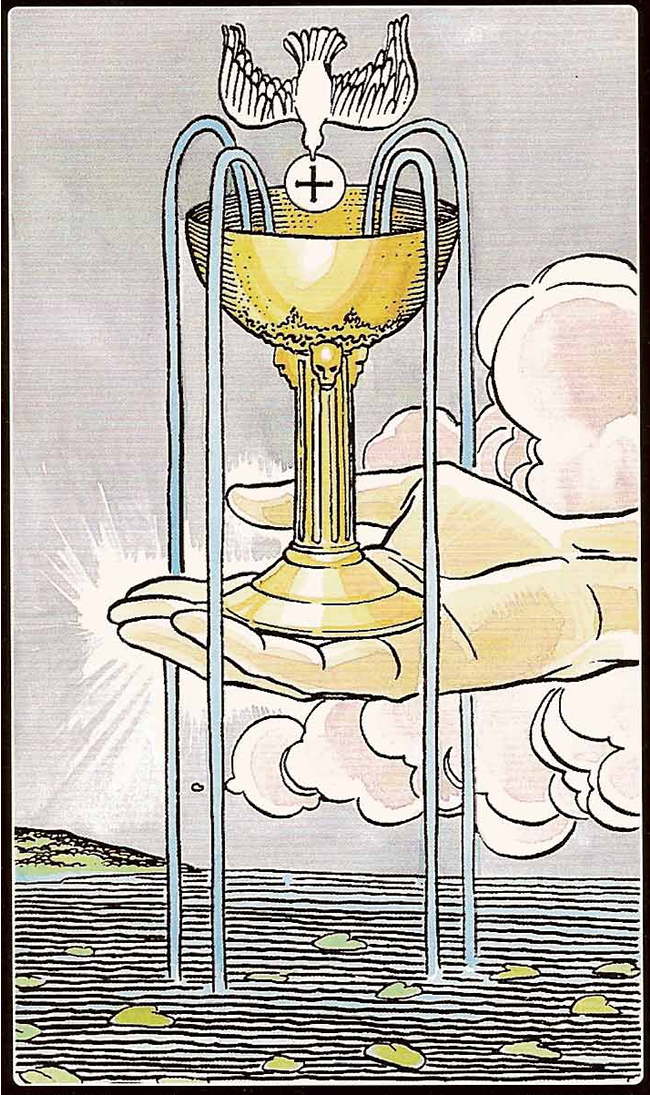Republished by Blog Post Promoter
Ace of Cups is a card used in Latin suited playing cards (Italian, Spanish and tarot decks). It is the Ace from the suit of Cups. In Tarot, it is part of what card readers call the “Minor Arcana”, and as the first in the suit of Cups, signifies beginnings in the area of the social and emotional in life. Tarot cards are used throughout much of Europe to play tarot card games.
Playing cards first entered Europe in the late 14th century, probably from Mamluk Egypt, with suits very similar to the tarot suits of Swords, Staves, Cups and Coins (also known as disks, and pentacles) and those still used in traditional Italian, Spanish and Portuguese decks.
The first known documented tarot cards were created between 1430 and 1450 in Milan, Ferrara and Bologna in northern Italy when additional trump cards with allegorical illustrations were added to the common four-suit pack. These new decks were originally called carte da trionfi, triumph cards, and the additional cards known simply as trionfi, which became “trumps” in English. The first literary evidence of the existence of carte da trionfi is a written statement in the court records in Ferrara, in 1442. The oldest surviving tarot cards are from fifteen fragmented decks painted in the mid 15th century for the Visconti-Sforza family, the rulers of Milan.
The Ace of Cups shows a hand holding a cup or chalice that is overflowing with five streams of water. The hand that appears from the clouds represents our consciousness of spiritual energy and influence. Radiating from the hand are rays which symbolizes that you must always trust your inner feelings and your heart to lead the way. This is your intuition and inner power talking to you. The five streams represent the abundance and power of the spirit and the effect of spiritual energy upon our five senses. A dove holding a wafer or small disc in its mouth descends from above, signifying the incarnation and appearance of the spirit in the material world. Below the hand is a great sea covered with lotus blossoms, symbolizing the awakening of the human spirit.
The Ace of Cups Tarot card’s meaning is of joy and inner peace from friends and family. The five streams pouring out of the cup represent the five senses: sight, smell, hearing, taste and touch. As a symbol of possibility in the area of deep feelings, intimacy, attunement, compassion and love, in divination, it shows that a seed of emotional awareness has been planted in your life although you may not yet recognize it. When the seed sprouts, it could take almost any form. It might be an attraction, strong feeling, intuitive knowing, or sympathetic reaction. On the outside, it could be an offer, gift, opportunity, encounter or synchronistic event.
This card also suggests inner spirituality. Cups are the suit of the heart, and the Ace stands for the direct knowing that comes from the heart. Trust what your feelings are telling you. Seek out ways to explore your consciousness and your connections with Spirit. Allow the power of your emotions to guide you in a new direction. Embrace the love that is the Ace of Cups.






